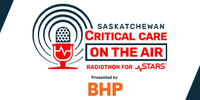This past Sunday marked one week since the public health orders aimed at curbing the spread of COVID-19 had been lifted in Saskatchewan.
While many around the province are glad to see a sense of normalcy, there are still reminders that COVID-19 isn’t gone.
Doctor Kevin Wasko is the Physician Executive for Integrated Rural Health with the Saskatchewan Health Authority. He explained that the various variants, which have started to pop up around the world, are the reason why many people are still holding their breath. In particular, medical professionals are wary of what is known as the Delta variant.
“It is a very virulent strain, and people are sicker and it impacts young people more severely than previous strains, so obviously, very concerning,” Dr. Wasko said.
The Delta variant has become the predominant strain of COVDI-19 around the world, and it has seen an increase in case numbers in many jurisdictions. This has medical professionals calling for people to roll up their sleeves and get fully vaccinated.
“Having only one dose seemed to provide pretty good protection against COVID in the early winter when the vaccines first rolled out, but with the Delta variant, having just one dose isn’t going to be sufficient,” Dr. Wasko added.
While in Saskatchewan, over 73 percent of those over the age of 12 have received their first dose of a COVID-19 vaccine, and 58 percent of those over 12 are fully vaccinated. While those numbers were enough for the restrictions to be lifted, they aren’t quite what will be needed for herd immunity according to Dr. Wasko.
“We do need, probably at least 85 percent of people to have received both doses, and that’s the number we are really looking at in terms of how we can hopefully achieve some sense of herd immunity locally.”
When it comes to achieving those numbers, vaccine hesitancy is a key issue. Dr. Wasko explained that as a medical professional, it is frustrating to see so many people using misinformation as a reason why they aren’t getting the vaccines.
"The vaccines are supported by very strong evidence, and the criteria that they had to go through for the approval process is stringent,” Dr. Wasko pointed out. “They are safe and they are overwhelmingly effective so it’s extremely frustrating as a health professional to hear people not trust in science.”











